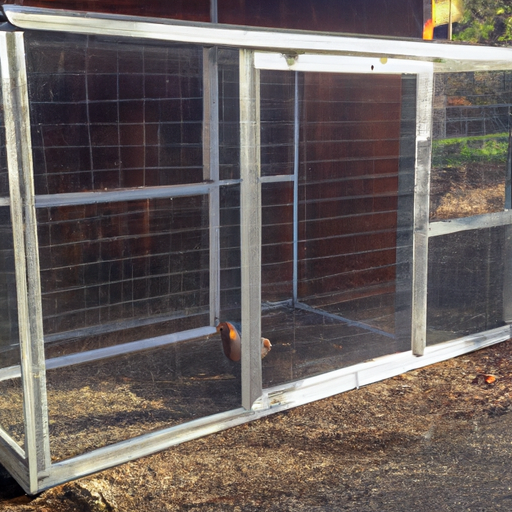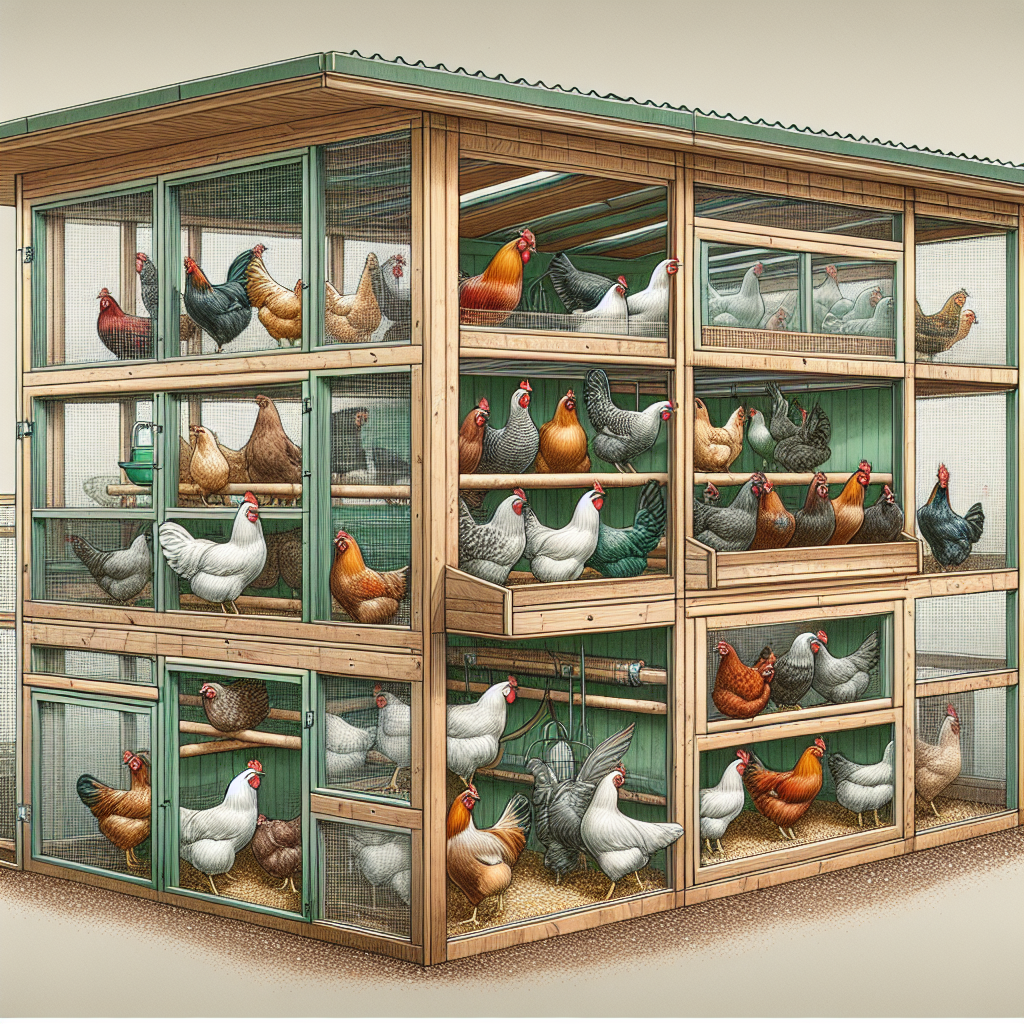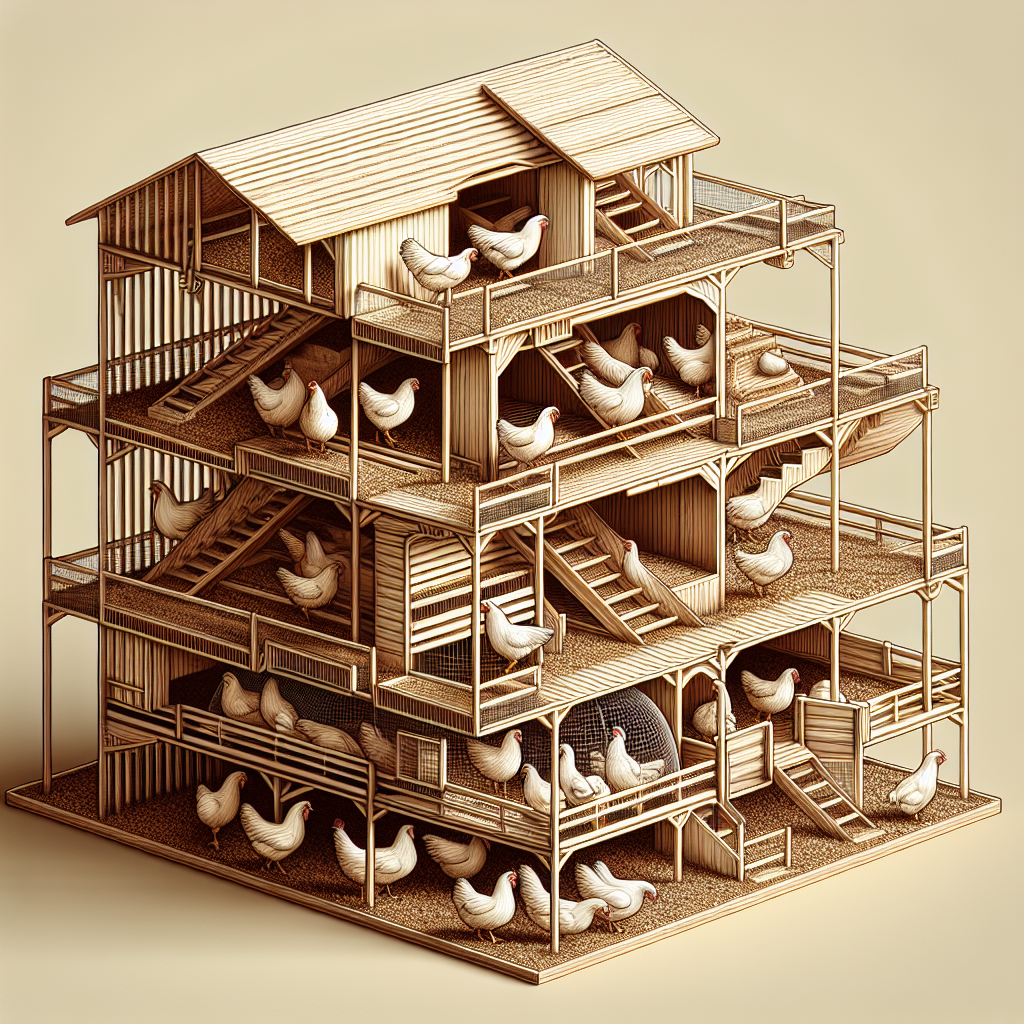Whether you’re a seasoned chicken farmer or just starting out, understanding the different types of coop varieties and the unique protection and safety features they offer is crucial. From classic wooden coops to state-of-the-art metal ones, each design comes with its own benefits and considerations. In this article, we explore the various coop varieties available in the market and delve into the ways in which they differ in terms of providing a safe and secure environment for your feathered friends. So sit back, relax, and let’s dive into the world of coop varieties and their fascinating features!
Protection Features
Sturdy Construction
When it comes to protecting your chickens, one of the most important features to consider in a coop is its sturdy construction. A coop with a solid and durable structure will not only withstand the test of time, but it will also provide a strong defense against potential predators. Look for coops made from high-quality materials such as heavy-duty wood or metal, as they are less likely to break or collapse under pressure. A sturdy construction ensures that your chickens are safe and secure inside their coop.
Predator-Proof Design
Predator-proof design is another vital feature to consider when selecting a chicken coop. This design aspect focuses on keeping predators out and your feathered friends safe inside. Coops with predator-proof features often include reinforced walls, securely sealed doors and windows, and a mesh or wire fencing that is strong enough to keep even the most determined predators at bay. By choosing a coop with a predator-proof design, you can rest assured knowing that your chickens are protected from threats such as foxes, raccoons, or birds of prey.
Secure Locking Mechanism
The importance of a secure locking mechanism cannot be overstated when it comes to chicken coop safety. A reliable and sturdy locking mechanism ensures that predators cannot gain access to your coop, and it also prevents your chickens from escaping. Look for coops with robust latches or locks that are difficult for animals to manipulate or break. A secure locking mechanism will give you peace of mind knowing that your chickens are safe inside the coop, even when you’re not around to watch over them.
Weatherproof Materials
Withstanding various weather conditions is essential for any chicken coop. Weatherproof materials, such as pressure-treated wood or UV-resistant plastics, can make a significant difference in protecting your coop from rain, snow, or intense sunlight. Coops with weatherproof materials are less likely to rot, warp, or deteriorate over time. By investing in a coop with weatherproof materials, you can ensure that your chickens have a secure and comfortable shelter regardless of the weather outside.
Fire Resistance
While it may not be the first thing that comes to mind when considering protection features, fire resistance is a crucial aspect to consider. Coops made from fire-resistant materials, such as metal or specially coated wood, can help prevent or slow down the spread of fire in case of an accident. Fire resistance adds an extra layer of protection to your chickens and provides you with peace of mind, knowing that you have taken steps to minimize potential risks.
Safety Features
Easy Access
One of the key safety features to prioritize in a chicken coop is easy access. Easy access allows you to check on your chickens, clean the coop, and collect eggs without any hassle. Look for coops with large doors or removable panels that provide ample space for you to reach inside and perform necessary tasks. Easy access not only makes your life easier but also reduces the likelihood of accidentally causing harm to your chickens during routine maintenance.
Built-in Ventilation
Good ventilation is essential for maintaining a healthy environment inside the chicken coop. Proper airflow helps remove excess moisture, ammonia, and odors, which can contribute to respiratory issues and other health problems in chickens. Coops with built-in ventilation systems, such as windows with mesh screens or vents, ensure a constant supply of fresh air without compromising security. A well-ventilated coop will help keep your chickens healthy and comfortable, enhancing their overall well-being.
Non-Toxic Materials
When selecting a chicken coop, it’s crucial to choose one made from non-toxic materials. Toxic materials, such as certain paints or treated woods, can pose serious risks to your chickens’ health. Coops constructed from natural, untreated wood or non-toxic materials guarantee that your chickens will not be exposed to harmful chemicals. By prioritizing non-toxic materials, you create a safe and healthy living environment for your feathered companions.
No Sharp Edges
Another safety feature to consider in a chicken coop is the absence of sharp edges. Coops with smooth and rounded edges minimize the risk of injury to your chickens. Sharp edges can cause cuts or scrapes, leading to infections or other health issues. By selecting a coop with no sharp edges, you provide your chickens with a safe space to move around and roost, reducing the likelihood of accidents or injuries.
Roosting Bar Placement
Roosting bars are an essential element of any chicken coop, as they provide a comfortable and secure place for chickens to sleep at night. The placement of these roosting bars is crucial for the safety of your feathered friends. Ideally, the roosting bars should be installed at an appropriate height to prevent chickens from accidentally bumping their heads or injuring themselves while jumping on or off. Properly placed roosting bars contribute to a safe and peaceful sleeping environment for your chickens.
Nest Box Accessibility
Last but not least, a chicken coop should offer easy accessibility to nest boxes. Nest boxes provide a private and secure space for hens to lay their eggs. Coops with easy-to-access nest boxes make it simpler for you to collect the eggs without disturbing the chickens or causing any unnecessary stress. Conveniently placed nest boxes also minimize the risk of eggs being accidentally crushed or damaged. Ensuring nest box accessibility in your coop contributes to the safety and productivity of your flock.
In conclusion, coop varieties differ in their protection and safety features to cater to the diverse needs of backyard chicken keepers. When choosing a coop, it is important to consider its sturdy construction, predator-proof design, secure locking mechanism, weatherproof materials, and fire resistance. Additionally, prioritize safety features such as easy access, built-in ventilation, non-toxic materials, no sharp edges, roosting bar placement, and nest box accessibility. By understanding and selecting a coop that incorporates essential protection and safety features, you can provide a secure and comfortable environment for your beloved chickens.




